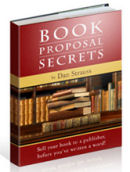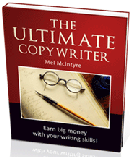|
Stephen King and the Road to Hell for
Writers
by Tom Aaron
If you look for advice on your writing, surf the Internet and
you will find advice galore. One writing site tells you that
one reason we plunk down money for writers like Stephen King is
because they use adverbs to make their writing interesting.
While adverbs, like adjectives, can help your writing in
moderation, many writers overuse and abuse them. This overuse
and abuse has resulted in today's overly strong reaction
against adverbs and adjectives. As King says, "The road to hell
is paved with adverbs."
Mark Twain shared King's lack of excitement about adverbs. He
wrote about them in his "Reply to a Boston Girl," in the June
1880 issue of Atlantic Monthly:
"I am dead to adverbs; they cannot excite me. To misplace an
adverb is a thing which I am able to do with frozen
indifference; it can never give me a pang. ... There are
subtleties which I cannot master at all,--they confuse me, they
mean absolutely nothing to me,--and this adverb plague is one
of them. ... Yes, there are things which we cannot learn, and
there is no use in fretting about it. I cannot learn adverbs;
and what is more I won't."
King and Twain are looking at writing textually rather than
from a grammar perspective. Thinking of grammar, most adverbs
end with "ly". A number of writing sites suggest using your
search function to find "ly" and editing it out unless the
adverb is absolutely necessary. Following this advice, I
checked this draft. I found three examples with "ly", two were
mine and one was Twain's.
1. From me: This overuse and abuse has resulted in today's
overly strong reaction against adverbs and adjectives.
2. From Mark Twain: they mean absolutely nothing to me,
3. From me: A number of writing sites suggest using your search
function to find "ly" and editing it out unless it is
absolutely necessary.
Let's see if we can edit these adverbs out and improve the
texts:
Example 1
Original text: This overuse and abuse has resulted in today's
overly strong reaction against adverbs and adjectives.
Revised text: This overuse has resulted in today's strong
reaction against adverbs and adjectives, ignoring their value
and place in English.
The new text deleted "overly" and added a phrase starting with
a gerund, a phrase using a gerund and nouns. From reading this
phrase, we can tell that the reaction is too strong and we
explain why: because the reaction ignores the value and place
of adverbs and adjectives in English. The question is which is
your preference: an adjective or the additional informative
text?
Example 2
Original text: they mean absolutely nothing to me,
Revised text: they mean nothing to me,
I hesitate to edit the words of Mark Twain. Were he here today,
he might agree about deleting "absolutely." Or he might say
that "absolutely nothing" sounds better. After all, they both
mean the same thing.
Example 3
Original text: A number of writing sites suggest using your
search function to find "ly" and editing it out unless it is
absolutely necessary.
Revised text: Some writing sites suggest using your search
function to find "ly" and editing "ly" out unless the adjective
is necessary or improves the writing.
In example 3, more text was edited than simply the adjective.
In order to have authentic examples of adjective use in this
article, the draft was not edited before selecting the
examples. Thus the original text contains unnecessary words, an
empty it, and an adjective, all of which were edited out. The
new text, without absolutely, is better.
When you write and edit your writing, edit out adjectives
whenever possible. If you have difficulty editing your writing,
some suggestions may help. You could have two places for your
writing work. One place is where you work to write and the
other is where you work to edit. The two places are much like
the two hat approach. You wear your writer's hat, the blue hat
with the red feather, when you write, and you wear your
editor's hat, the green hat with the blue feather, when you
edit. You sit near the window when you write; you go to the
coffee shop when you edit. In writing you may cherish
adjectives, but in editing you search and destroy without
hesitation.
If you put your writing away for a week, you may be able to
read the text as if it had been written by someone else. You
may feel no connection to the writing and given the lack of
connection, you may begin to edit without feeling ownership of
the text.
Still, in spite of everything we've said, moderate adjective
use can improve writing.
DOWNLOAD THIS ARTICLE IN PDF
FORMAT
Back to
Top
Aaron Language Services is on the web at http://www.aaronlanguage.com
We provide
Japanese to English translation, English proofreading, and
online English coaching to a primarily Japanese client
base.
Source: http://www.submityourarticle.com
Permalink:
http://www.submityourarticle.com/a.php?a=58909
| 



![]()





